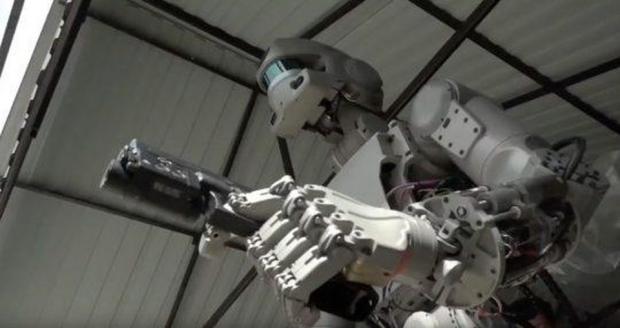
Breaking News
 Which party represents Americans?
Which party represents Americans?
 Even The Best AI Scenario Is The End Of Everything We've Ever Been
Even The Best AI Scenario Is The End Of Everything We've Ever Been
 In Simulated War Games, Top AI Models Recommended Using Nukes 95% Of The Time
In Simulated War Games, Top AI Models Recommended Using Nukes 95% Of The Time
 Rising Cancer Rates, the Globalist Agenda, and the Big Business Land Grab Making You Poor
Rising Cancer Rates, the Globalist Agenda, and the Big Business Land Grab Making You Poor
Top Tech News
 New Spray-on Powder Instantly Seals Life-Threatening Wounds in Battle or During Disasters
New Spray-on Powder Instantly Seals Life-Threatening Wounds in Battle or During Disasters
 AI-enhanced stethoscope excels at listening to our hearts
AI-enhanced stethoscope excels at listening to our hearts
 Flame-treated sunscreen keeps the zinc but cuts the smeary white look
Flame-treated sunscreen keeps the zinc but cuts the smeary white look
 Display hub adds three more screens powered through single USB port
Display hub adds three more screens powered through single USB port
 We Finally Know How Fast The Tesla Semi Will Charge: Very, Very Fast
We Finally Know How Fast The Tesla Semi Will Charge: Very, Very Fast
 Drone-launching underwater drone hitches a ride on ship and sub hulls
Drone-launching underwater drone hitches a ride on ship and sub hulls
 Humanoid Robots Get "Brains" As Dual-Use Fears Mount
Humanoid Robots Get "Brains" As Dual-Use Fears Mount
 SpaceX Authorized to Increase High Speed Internet Download Speeds 5X Through 2026
SpaceX Authorized to Increase High Speed Internet Download Speeds 5X Through 2026
 Space AI is the Key to the Technological Singularity
Space AI is the Key to the Technological Singularity
 Velocitor X-1 eVTOL could be beating the traffic in just a year
Velocitor X-1 eVTOL could be beating the traffic in just a year
Russia is aiming to replace human soldiers with 'faster and more accurate' robot ...

A top Russian researcher has claimed that 'faster and more accurate' robots will replace their soldier 'brothers' in combat on the battlefield.
'Living fighters will gradually begin to be replaced by their robotic 'brothers' who can act faster, more accurately and more selectively than people,' Vitaly Davydov told local media in April. Davydov is the deputy director of Russia's Advanced Research Foundation.
Davydov has said robotics will be the future of military conflict due to their increased speed and because they can be more accurate in target selection.
Russia will begin testing their newly developed robot, the Marker UGV, towards the end of this year.
In July last year, the country also sent an humanoid droid into space.
'There is a still-classified Russia's military robotics road-map that sketches out various stages of Russian unnamed military developments, which undoubtedly has been influenced by Russian military actions and experience in Syria,' Samuel Bendett, an adviser at the Center for Naval Analyses, told Forbes.



